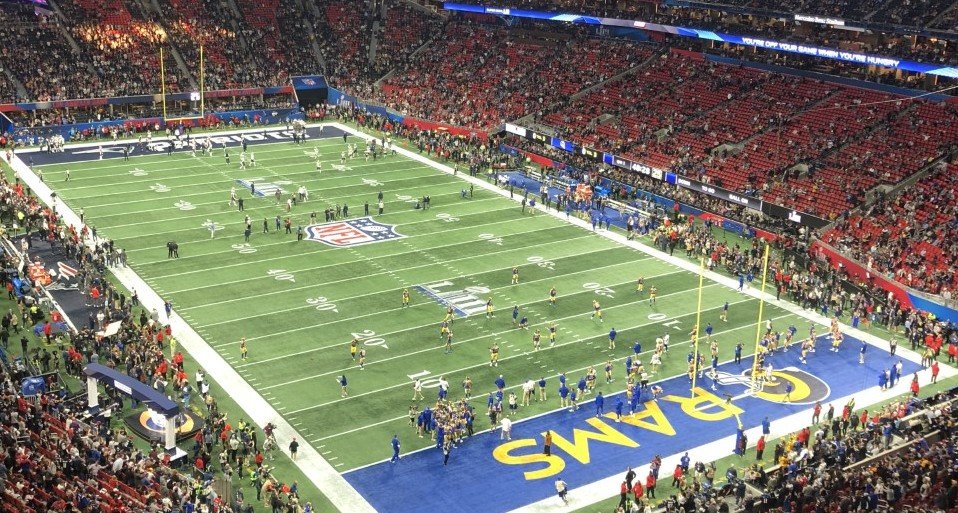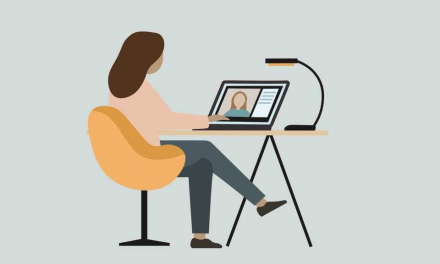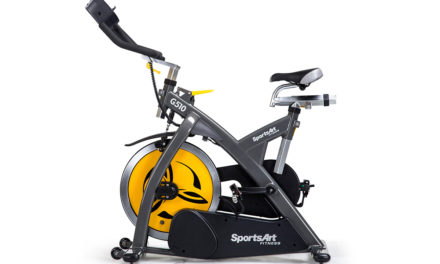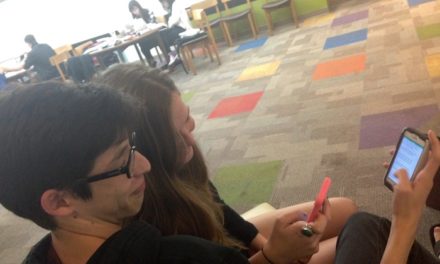
The New England Patriots defeated the Los Angeles Rams 13-3 in the Super Bowl./Courtesy of Daniel Weinberg
In the Pepsi Super Bowl 53 Halftime Show, everything was planned down to a tee. And then Maroon 5 lead singer Adam Levine took his shirt off.
That was not supposed to happen, said Anna Glass (19C) and Sam Oppenheim (19B), members of Emory a cappella groups The Gathering and Aural Pleasure, respectively.
The Gathering, Aural Pleasure and Dooley Noted were among several Atlanta groups invited to take part in the Super Bowl halftime show. Their responsibilities, though not related to singing, ranged from standing in Maroon 5’s fan section to bringing drone-powered paper lanterns onto the field.
To ensure the whole performance would go smoothly, The Gathering and Aural Pleasure attended roughly 35 hours of mandatory rehearsal in the week leading up to the event. There they watched Levine and rappers Travis Scott and Big Boi perform their sets multiple times. Not once during rehearsal did Levine take his shirt off.
Aural Pleasure’s involvement in the Super Bowl all began with a cryptic message.
“We got an email at the turn of the new year,” Oppenheim said. “[It was] very vague. It [said], ‘Would you be interested in performing in the Super Bowl?’ And I thought it was spam.”
After following up, Oppenheim, along with eight other members of Aural Pleasure, decided to seize the opportunity. They joined groups like the University of Georgia fencing team to make up the 1,000-person ensemble. Aural Pleasure was assigned to carry the drones onto the field; they released them to spell out the words “One Love” in the sky while Levine sang “She Will Be Loved.”
“If there’s anything I learned, it’s just that everything moves so slowly,” Oppenheim said. “You need to have so much patience just because there’s so many bodies doing a million things at once.”
As part of the “fan cast,” members of The Gathering were required to stand by the stage and cheer on Sunday’s performers. They were stationed in front of Travis Scott when he dramatically emerged from a ring of fire.
Glass’ favorite part, however, was not watching Maroon 5, Travis Scott or Big Boi perform; it was her 15 minutes of fame during the ride to the Mercedes-Benz Stadium. The Gathering and other halftime performers waited at Atlanta Technical College (Ga.) until they were shuttled over to the stadium in school buses.
“We were in a police escorted motorcade of … yellow school buses,” Glass said. “They blocked off every intersection on our way down to the game so that we didn’t have any traffic. … And all these people [were] filming us from the sidewalk. And we are nobody. We are not a famous cohort or anything, so it was pretty funny.”
Once The Gathering and Aural Pleasure filed onto the field, everything went according to plan, although Glass said she could not hear the headliner well.
“It was fine,” Oppenheim said of the halftime performance. “With the choice of Maroon 5 you’re not going to get the spectacle of … Beyonce or Katy Perry.”
For The Gathering and Aural Pleasure, this year’s Super Bowl buzz began and ended in the span of a few weeks. But some Emory students have been involved in the massive production for far longer.
Megan Johnston’s (21C) Super Bowl experience began last summer, when she and around 30,000 others applied to become volunteers for the biggest sporting event in the United States. Several months and an interview later, Johnston was chosen as one of 10,000 volunteers to help put on the colossal game and halftime show.
Her work began last week as she greeted and signed in other volunteers at Volunteer Headquarters, located in AmericasMart Atlanta Building 1 near Centennial Olympic Park.
“I was just chatting with the volunteers the whole time,” Johnston said. “Everyone was just so happy, jumping around. There was music inside the headquarters. It was just a really positive environment.”
Although Johnston said she is not a diehard football fan, she appreciates the spirit that comes with the sport — and the free swag didn’t hurt.
“We got these nice jackets and shirts and socks and a hat and a scarf,” Johnston said. “Every time we checked in, we’d get new swag. That was just kind of a bonus.”
Like Johnston, Daniel Weinberg (19C) knew early on that he wanted to take advantage of Super Bowl 53’s Atlanta location. A former summer intern for the NFL’s New York offices, Weinberg’s summer experience included running into NFL Commissioner Roger Goodell on an elevator.
It only made sense for him to apply to be a spring intern during the NFL’s biggest event of the year.
A quantitative sciences (QSS) major and one of the only undergraduate NFL interns, Weinberg played an integral role in setting up much of the technology used in the weeks leading up to and during the game. He served as an IT intern and was responsible for ensuring that all of the venues housing Super Bowl events were properly equipped.
“There were over 10 different venues that we had to set up,” Weinberg said. “The headquarters was in a hotel, and then they also had a bunch of different satellite locations.”
Weinberg learned on the fly for the majority of his internship, he said, but never felt stressed.
“It was a lot of setting up phones, printers, internet, TVs … all of their infrastructure so that when everyone from the New York and L.A. offices come to Atlanta the week before the Super Bowl, they all have their offices there and up and running,” Weinberg said.
Since most of his internship involved preparing for the game, Weinberg was finally able to sit back and enjoy the game’s first half in person and the second half from the press box. He called the experience “very loud” and “surreal.”
The day after the game, Weinberg and the rest of the IT team took down the tech infrastructure at each Super Bowl venue.
As Atlanta’s Super Bowl furor starts to wind down, some students who participated are glad the big day is over.
“It was a lot of time for a little bit of work,” Oppenheim said. Glass echoed his sentiments.
Standing on the biggest sports stage in the country, however, is an experience you can never replicate.
“I went in there saying, why is this such a big deal?” Oppenheim said. “But it’s so much more than football. It’s just inherently an American thing that everyone can get involved in.”
nicole.sadek@emory.edu
Nicole Sadek (20C) is from Charleston, S.C., majoring in English and creative writing and international studies. Sadek previously served as editor-in-chief, social media editor, copy chief, managing editor, editor-at-large and editor-in-chief.






